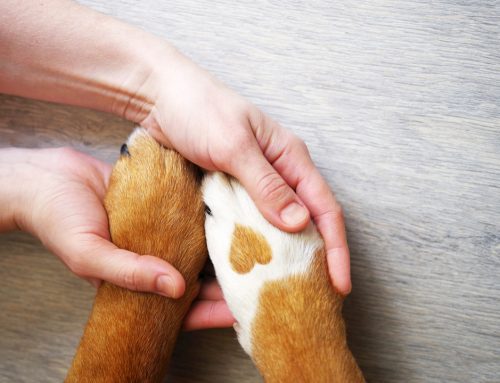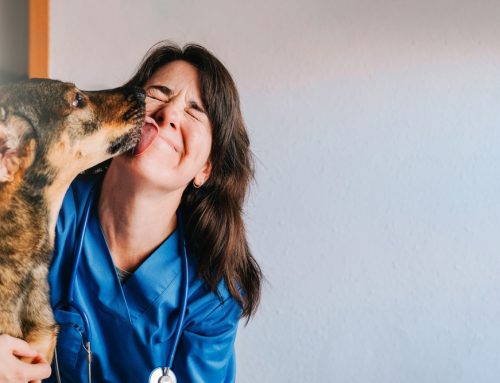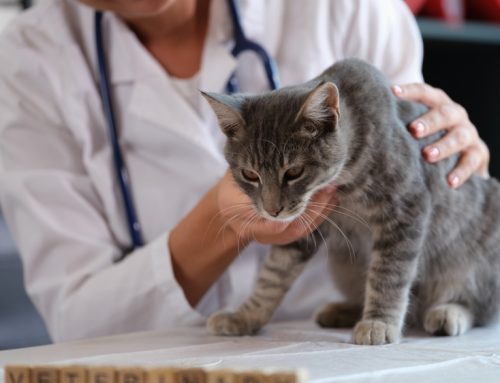Have you ever watched your cat and wondered what is going through their mind when they perform some odd behaviors? Cats are enigmatic creatures and the most seasoned cat owner can find them difficult to understand. From booping you with their heads, to scampering over your bed in the middle of the night, your unusual feline friend may leave you puzzled. But, don’t worry—many of these strange behaviors are completely normal in the feline world. Your Countryside Animal Hospital team is here to help you decode your cat’s mysterious behavior, and let you know if it’s normal or not. Here are a few of the most common unusual behaviors in cats, and the reasons behind them.
#1: Hiding in small spaces
Although your cat thinks they’re a fierce hunter, they’re also a prey animal. Cats are unique creatures in that they’re both predator and prey, and need small spaces to feel safe and secure. They also have an instinctual need to perch up high to monitor their territory, so providing small hideaways for surveying and hiding opportunities will tackle two of your cat’s needs at once. However, ensure your cat has one, if not more, exits from their hiding space so they don’t feel trapped.
#2: Kneading soft objects
When your kitty settles in for a nap, they may knead your lap, a blanket, or other soft surface to create a cozy nest. Kneading—the pushing and pulling motion using the front paws—is an instinctual behavior left over from kittenhood, when kittens would knead as they nursed. This comforting motion helps them further relax for the most restful nap. Additionally, kneading deposits pheromones from scent glands located in your cat’s paws, which marks the kneaded area, and claims the spot as their own.
#3: Curling their lip
You may have noticed your cat sneering off into space, or curling their upper lift, an action known as the flehmen response. Your cat’s face may also look glazed over during this smirking action. When your cat smells an unusual scent, they may open their mouth or lift their upper lip to help the strange scent reach their vomeronasal organ located on the roof of their mouth. This organ helps interpret scents and reads messages left by feline-specific pheromones. You’ll most likely notice this behavior if you come home smelling like other cats, or if a stray cat is hanging around your doors or windows.
#4: Chattering at birds
This adorable noise is typically heard when cats see a prey animal beyond their reach, such as a bird on the other side of a window. The chattering noise is thought to be a sign of frustration, since your cat is barricaded against performing a natural behavior. With the increased apps and TV shows that display mice, birds, and other prey, your cat may make this noise at your phone, tablet, or TV when they see their prey lurking out of reach.
#5: Getting the middle-of-the-night zoomies
Contrary to popular belief, cats are not true nocturnal animals, but rather they are crepuscular, meaning they’re most active at dawn and dusk when their rodent prey is out and about. Because of this, your cat likely displays bursts of energy, or zoomies, at these odd hours. Plus, after sleeping most of the day, your cat is ready to stretch their muscles by chasing imaginary prey, whether or not the time is inconvenient for you.
#6: Offering a headbutt
Have you ever been blessed with your cat’s head boop? This action, known as bunting, demonstrates their love and affection for you. Bunting behavior not only shows your cat’s adoration, but also marks you as their own. Cats have multiple scent glands in their faces, and when they bunt, they deposit pheromones on your face that claim you as their human. Bunting is a sign of trust, love, and respect, and is a wonderful behavior to experience from your pet.
#7: Purring in unusual situations

Many people believe cats purr only when they’re happy, but they also purr when they’re scared or hurt. Purring is soothing, and your cat may purr if they are a bit under the weather, or if they’re anxious because of visiting guests. We also see cats purr at Countryside Veterinary Hospital, although we know they aren’t always happy to be visiting their veterinarian, and this purring is typically chalked up to stress and anxiety.
If your cat’s behavior ever concerns you, contact our Countryside Veterinary Hospital team. We’ll help decipher your feline friend’s unusual antics, and decide if they need veterinary attention, or are simply being a cat.







Leave A Comment